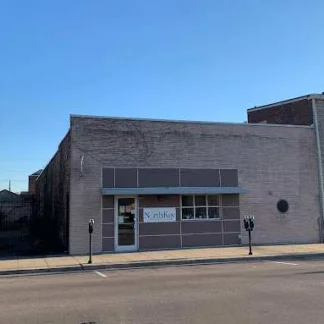Central Clinic Behavioral Health - Young Child Institute
Central Clinic Behavioral Health – Young Child Institute is a drug and alcohol r...
NorthKey Community Care - East 5th Street provides mental health and substance abuse services based in research and integrated into the 8-county Northern Kentucky region. NorthKey Community Care - East 5th Street is located in Newport, Kentucky.
Contact us for more information: (859) 781-5596

Connect with NorthKey Community Care - East 5th Street by calling their admissions team directly.
(859) 781-5596 Website Get DirectionsThe Joint Commission, formerly known as JCAHO, is a nonprofit organization that accredits rehab organizations and programs. Founded in 1951, the Joint Commision's mission is to improve the quality of patient care and demonstrating the quality of patient care.
Joint Commission Accreditation: Yes
NorthKey Community Care provides services to help you improve the mental health of your children and family. Their professional staff understands behavioral health issues and how to help your children, and you, improve communication and reduce family tensions.
Group therapy helps you discuss, develop and improve your personal recovery as well as helps you learn from others who are engaging in recovery. Their therapeutic group helps you improve your life skills and acquire a support system for those times when your recovery is challenged.
In individual therapy, a patient meets one-on-one with a trained psychologist or counselor. Therapy is a pivotal part of effective substance abuse treatment, as it often covers root causes of addiction, including challenges faced by the patient in their social, family, and work/school life.
Life skills trainings involve all the skills a person must have in order to function successfully in the world. These include time management, career guidance, money management, and effective communication. Truly successful addiction recovery is based on the ability to not only live substance-free, but to thrive. Life skills teaches the practical necessities of functioning in society, which sets clients up for success in life, and therefore sobriety.
Group therapy helps you discuss, develop and improve your personal recovery as well as helps you learn from others who are engaging in recovery. Their therapeutic group helps you improve your life skills and acquire a support system for those times when your recovery is challenged.
In individual therapy, a patient meets one-on-one with a trained psychologist or counselor. Therapy is a pivotal part of effective substance abuse treatment, as it often covers root causes of addiction, including challenges faced by the patient in their social, family, and work/school life.
Life skills trainings involve all the skills a person must have in order to function successfully in the world. These include time management, career guidance, money management, and effective communication. Truly successful addiction recovery is based on the ability to not only live substance-free, but to thrive. Life skills teaches the practical necessities of functioning in society, which sets clients up for success in life, and therefore sobriety.
In individual therapy, a patient meets one-on-one with a trained psychologist or counselor. Therapy is a pivotal part of effective substance abuse treatment, as it often covers root causes of addiction, including challenges faced by the patient in their social, family, and work/school life.
Life skills trainings involve all the skills a person must have in order to function successfully in the world. These include time management, career guidance, money management, and effective communication. Truly successful addiction recovery is based on the ability to not only live substance-free, but to thrive. Life skills teaches the practical necessities of functioning in society, which sets clients up for success in life, and therefore sobriety.
Life skills trainings involve all the skills a person must have in order to function successfully in the world. These include time management, career guidance, money management, and effective communication. Truly successful addiction recovery is based on the ability to not only live substance-free, but to thrive. Life skills teaches the practical necessities of functioning in society, which sets clients up for success in life, and therefore sobriety.
Central Clinic Behavioral Health – Young Child Institute is a drug and alcohol r...
Talbert House–Pathways, in Cincinnati, Ohio, is a residential drug and alcohol r...
Commonwealth Substance Abuse Specialists is located in Newport, Kentucky. Common...
Sober Living - Camp Washington Men's House offers a clean and affordable house f...